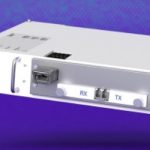IBM Accelerates Germany’s Drive to Be a “Quantum Hot Spot”

(AllAboutCircuits) Being the center of new and industry-changing innovations is often sought after. With the rise in quantum breakthroughs, one place strives to be the quantum “hot spot:” Germany.
Recently, Germany’s position came just a bit closer to reality, with help from IBM and the Fraunhofer Society, by creating Europe’s (EU) first quantum computer, the Quantum System One (QSO).
In Ehningen, Germany, IBM Quantum System One is the first quantum computer of its kind in Europe. An identical QSO was exclusively located in IBM’s New York datacenter before helping build one in the EU.
There’s currently plenty of quantum computing buy-in within Germany. The Fraunhofer Society—a multi-institute collective centered on scientific research—played a crucial role in purchasing the continent’s preeminent quantum workhorse. The group will continue to operate the system at its Stuttgart facility. Additionally, German chancellor Angela Merkel helped present Quantum System One to the masses at IBM DACH.
Government support remains strong following a €2 billion pledge to fund quantum research. Politically and economically, federal legislators believe quantum innovation could bolster German prominence domestically and on the world stage. This pledge is just one part of the country’s Quantum Computing Roadmap.
Another part of the roadmap is the crucial role of attracting top global quantum engineering talent to German tech hubs. These regional locations dubbed “Centers of Competence” encompass companies, research firms, and academic institutions committed to quantum development.
One specific venture is the Munich Quantum Valley. Members—including Fraunhofer and other Bavarian institutions—want the Munich metropolitan area to be a destination for quantum experts. The regional group hopes to play a central role in the national quantum strategy. As a center for funding and R&D, this area seeks to emulate America’s Silicon Valley.
Benefits could come out of creating a quantum hub there. Consider Germany’s dominant sectors, the headliner of which is automotive. Quantum computing has immense potential to optimize materials science, algorithmic processing of autonomous driving data (including routes or navigation), and novel technology development. Moreover, the mesh of quantum computing with automotive developments could help push innovations and breakthroughs that standard computing struggled with.























